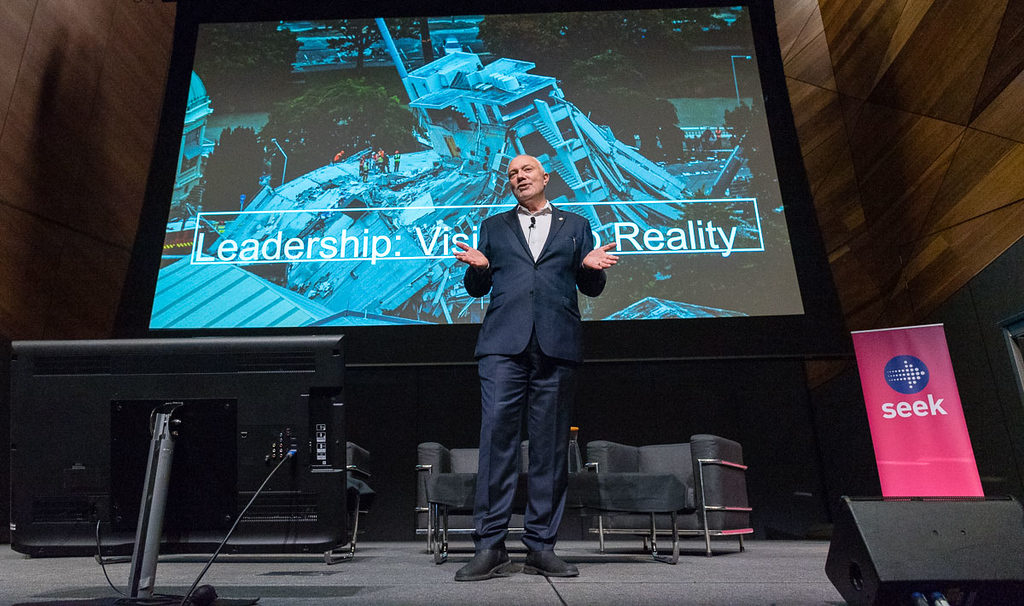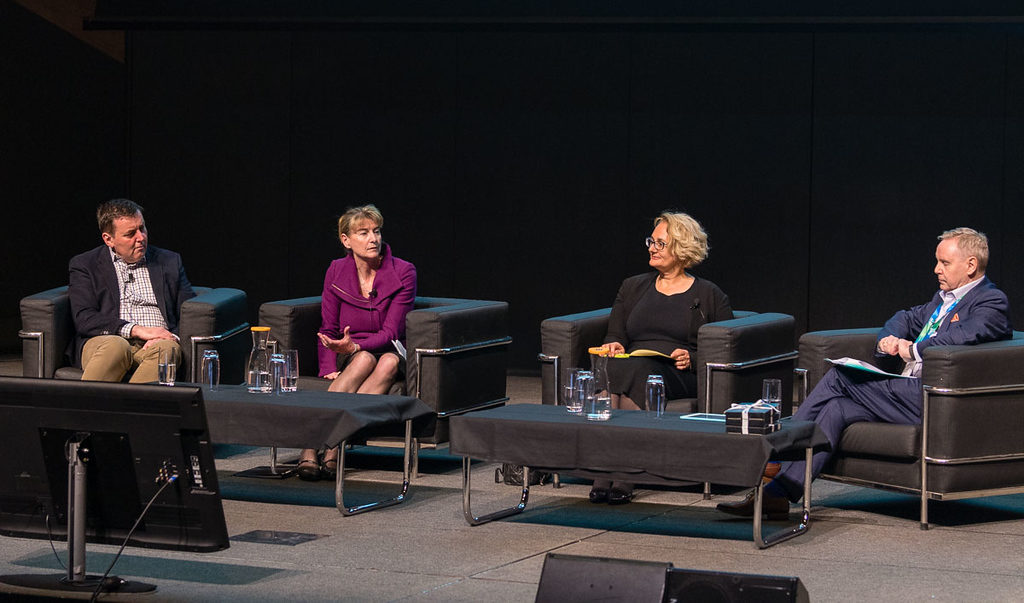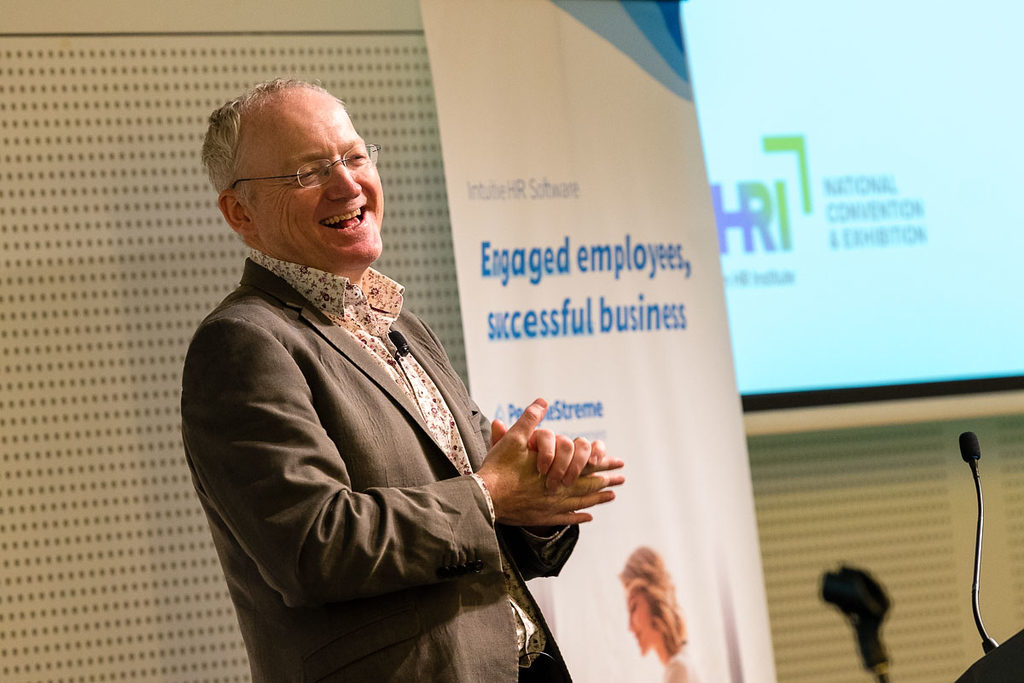From the courage displayed in a crisis, to the overhaul required when a culture turns sour – here are three things HR should take into account about decision-making.
1. There’s a leader in all of us
When Sir Bob Parker was the mayor of Christchurch, the city suffered a series of devastating earthquakes, culminating in a 25 second destructive force that occurred five kilometres below the city. It was equivalent to three times the strength of the nuclear bomb dropped on Hiroshima in World War II. Christchurch suffered 185 deaths, 10,000 immediate injuries and is still dealing with the long-lasting effects of post-traumatic stress disorder.
As the city’s leader, Parker was thrust into the middle of the crisis, but he doesn’t take individual credit for gearing the city out of the woods. “Each and every one of you is capable of extraordinary things, of being great leaders,” said Parker in his opening address of the Public Sector Conference at the 2018 AHRI Convention and Exhibition. “But sometimes it takes a crisis to bring it out of us.”

Leading the city through the devastation required some key things: authenticity, collaboration, supporting the people and strong decision-making. “We stayed honest about the facts,” says Parker. “There were no cover-ups. We worked hard to communicate with our community. We needed to create a clear vision that we would get out of this.”
Parker was quick to note that the effort was by no means singular, which is something any organisation should take heed of. “Any achievement I received was a result of the great people around me,” he says. “What works is the network. I knew the right people in key roles, such as the police chief and fire brigade chief. Those strong relationships are crucial to leadership.”
When an earthquake of this magnitude hits, and buildings and businesses come tumbling to the ground, coming into work is neither a priority or a possibility. Christchurch was essentially out of commission for six weeks. Parker said there was a strong belief that the city would recover, and that meant building it back up by supporting their people.
“We changed the rules, we did what we shouldn’t,” says Parker. “Because what was the point of rules? We might not have always done everything right, but we never refused to make a decision. Like, which person can I save?”
Delegate Scott Beasley from the Department of Agriculture and Water Resources said the lesson he took away from Parker’s presentation was the importance of “just doing something”.
“Don’t get stuck in a decision-making process. We’ve all got leadership abilities within us and it will come out at the appropriate time. [As HR practitioners] we need to learn how to harness that leadership before we have a critical incident,” said Beasley.
2. Ethics not processes
Christchurch’s crisis was beyond any human’s ability to stop or control. Whereas the crises faced by organisations are often embedded in past mistakes.
This is what occurred in the Department of Defence after a 2016 report into its “rancid” culture. Justine Greig, director general people strategy and culture at the Department of Defence, said post-report there was an overhaul of the ethics, leadership accountability and decision-making processes of the organisation. Also speaking at the Public Sector Conference, Greig noted that the processes and rules that govern decision-making can lead to misguided acts, simply because they aren’t coming from the right place.
Paula Goodwin, first assistant secretary (chief operating officer) Department of Environment and Energy, echoed this sentiment: “When we have such a rules-based approach, we forget how to help people make inherently good decisions.”

“Most people go to their immediate manager for advice about ethical decisions. So how do we build these managers up so that they have good decision-making processes?” she says. “Rules can take away the ability to think ethically. We need to instead, build this capability in people. Setting expectations is the key motivator.”
Peter Collins, director, Centre for Ethical Leadership, believes HR has a much bigger role to play in leadership than they currently exercise. “Unethical cultures are a passive defence to over-processing. HR shouldn’t look upwards for answers, they should just go for it. They should drive a sense of ethical purpose by engaging employees.”
3. Beware of the decision-making you leave to computers
A question we need to start asking ourselves, according to Toby Walsh – a professor on artificial intelligence at UNSW and Data61 and presenter at the AHRI Tech Conference – is to what extent should we give machines the ability to make decisions over human lives?
Because in this day and age there’s a temptation to do exactly that – whether it’s to an algorithm or AI. And this is despite famously disastrous examples of problematic tech, including Google’s racist image recognition labelling black people as gorillas and Centrelink automating its debt recovery.
For HR, AI has started to be used to handle resume screening, the analysis of video interviews, and performance management. If this technology is flawed, it can have profound effects on people’s lives.

On the other hand, it’s not as though human decision-making isn’t deeply flawed, and frequently troubling in its own right. To illustrate, Walsh referred to a study of Israeli judges presiding over parole hearings. It turned out that you could track the harshness of their decisions by how far away they were from their last break. As they moved away from a meal, and their blood sugar dropped, the judges became less likely to demonstrate leniency.
The advantage of a machine, it would seem, is that it has none of these biological weaknesses or our very human biases. Unfortunately it can have biases of its own and on top of that it lacks accountability. Facebook can throw up its arms when its accused of allowing for racially targeted ads, and blame the vagaries of their algorithm.
But, says Walsh, bad behaviour is bad behaviour and it doesn’t matter if it’s digital. We wouldn’t consider it okay if a TV campaign was racially based, so why is it okay on social media? We wouldn’t be okay with people opening our mail, so why should we be okay with the hoovering up of our private online data?
Half-jokingly, Walsh says we are moving into the age of the CPO, or “Chief Philosophy Operator”. Technology allows us to be very precise with our ethical considerations, and measure bias down to each data point. But until we have these longer conversations, and have a better way to remove the bias from AI, perhaps all organisations should be following the dictum of Mike Pezzullo, Secretary of the Department of Home Affairs: “No fundamental rights, privileges or entitlements should ever be denied by a computer.”
Image credit: superjoseph
Discover innovative HR solutions and the latest HR technology at Australia’s largest HR exhibition – a part of the AHRI National Convention and Exhibition at the Melbourne Convention and Exhibition Centre. Free exhibition entry Wednesday 29 August and Thursday 30 August.

